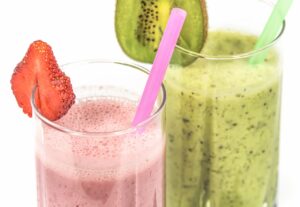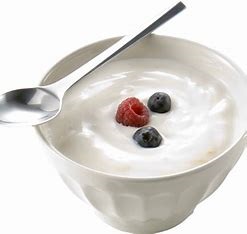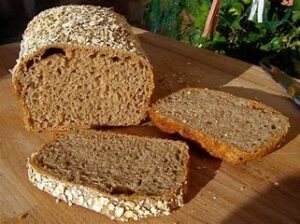Key Takeaway on Fermented Foods:
- Fermented foods help promote a healthy gut and immunity: Fermentation increases the number of beneficial bacteria in foods, which can improve gut health, digestion, and strengthen the immune system. Incorporating fermented foods into your diet can lead to better overall health.
- Some of the best fermented foods for gut health and immunity include kefir, sauerkraut, kimchi, kombucha, tempeh, miso, yoghurt, pickles, and sourdough bread. These foods are loaded with probiotics, vitamins, and minerals that can improve digestion and provide other health benefits.
- When incorporating fermented foods into your diet, it’s important to start slowly and listen to your body. Take precautions when consuming fermented foods, such as avoiding excessive salt or sugar content and properly storing homemade ferments to prevent harmful bacteria growth.

Introduction
Fermented foods have become increasingly popular lately, due to their effects on gut health and immunity. They contain helpful bacteria, which are important for digestion, nutrient absorption, and immune system function. This article will discuss the advantages of eating fermented foods and how they can benefit wellbeing.
Kefir, kimchi, sauerkraut, and yoghurt are some of the finest fermented foods for gut health. Additionally, they are packed with vitamins, minerals, and antioxidants. But, it’s important to take note that not all fermented foods are equal. The best ones have live and active cultures, which are responsible for the health benefits.
Studies suggest that consuming fermented foods can reduce inflammation, enhance digestion, and fortify the immune system. For instance, kimchi has been seen to boost cholesterol levels, while kefir can help those with lactose intolerance digest lactose. Including these foods in your diet can have a variety of health benefits, while supporting your body’s natural defences.
Understanding Fermentation and Probiotics
Fermentation and probiotics are two important elements for keeping a healthy gut and immune system. Fermentation is a biological process in which microorganisms such as yeasts, bacteria, and moulds change organic substances to different forms. Probiotics, on the other hand, are live microorganisms that can be beneficial when consumed in adequate amounts.
Fermented foods are a good source of probiotics, as they include a culture of microbes like Lactobacillus and Bifidobacterium species. These microbes break down carbs and proteins in the food, creating a food rich in helpful bacteria and enzymes. This can improve digestion, increase nutrient absorption, and strengthen the immune system.
The advantages of probiotics are not only restricted to digestion. A healthy gut microbiome has been linked to stopping and treating a variety of conditions, such as allergies, asthma, autoimmune problems, diabetes, obesity, and mental health issues. You can get probiotics from fermented foods, supplements, or functional foods, depending on your individual needs and preferences.
Don’t miss out on the benefits of probiotics. By having fermented foods in your diet or taking a probiotic supplement, you can boost your gut health, enhance your immune system, and potentially stop various diseases. But, it’s essential to talk with a healthcare provider before beginning any new dietary routine. Start making minor changes today to get the rewards for years to come.
Best Fermented Foods for a Healthy Gut & Immunity
Fermented foods are receiving a lot of attention these days for their role in promoting a healthy gut and strong immune system. In this section, we’ll take a closer look at the best fermented foods that can help improve our overall health. From tangy kefir to crunchy pickles and sourdough bread, we’ll explore the benefits of these superfoods and how they can make a difference in our day-to-day lives.
Kefir

Kefir is a great food with plenty of probiotics – good bacteria – that can help with gut health. It’s brimming with calcium, protein, vitamins B12 and K2, so it’s an amazing source of nutrition. It can help lower cholesterol, boost the immune system, and improve overall health. Plus, its fermentation process can make it easier to digest lactose, making it ideal for those with lactose intolerance.
It can contain up to three times more probiotics than regular milk, which is why it’s one of the best fermented foods for a healthy gut and immunity. You can also make kefir from non-dairy sources such as coconut milk or water.
Concluding, kefir is rich in nutrients and easier on the digestive system than other dairy products. If you want a nutritious and delicious way to improve your gut health and immunity, kefir is a great option. And if you want to be daring, give it a try – sometimes, the best way to better your gut health is through classic fermented and funky flavours.
Sauerkraut

Sauerkraut is nutrition-packed! It’s a great source of Vitamins C & K, iron, potassium and calcium. Plus, it’s fermented, creating natural probiotics that boost gut health by helping good bacteria grow. Antioxidants in sauerkraut fight cell damage from free radicals, reducing the risk of chronic diseases like cancer and heart disease. And its fibre content aids digestion and may reduce gut inflammation.
For low-carb and keto dieters, sauerkraut is a great food. It’s low in calories and carbs. You don’t need any special equipment to make it at home – just shredded cabbage, salt and water.
Regular consumption of sauerkraut can improve gut health, immune system, aid weight loss and protect against chronic illnesses. Spice up your gut health with homemade Kimchi!
Kimchi

Kimchi is a yummy and healthy dish. It’s made by fermenting veggies like cabbage, garlic, ginger, and chilli peppers. Probiotics in kimchi help the growth of good bacteria in the gut. This Korean dish is loaded with vitamins A, B1, B2, calcium, and iron. This boosts the body’s immune system and fights bad pathogens.
The fermentation process produces compounds like lactic acid. This can reduce body inflammation. Eating kimchi has been linked to weight loss too! The spiciness comes from capsaicin. This is a compound with antioxidants, which helps fight oxidative stress.
If you’re new to spicy food, start with small amounts of kimchi. Then, have more until you reach your ideal spiciness. Kombucha is another great fermented beverage. It gives you the feeling of drinking alcohol, but it’s actually really healthy.
Kombucha

Kombucha is a fermented drink that has been around for centuries. It came from China. It has changed over time with different tastes and ingredients added for flavour and nutrition.
It is full of probiotics which may help with gut health and immunity. Plus, it has little sugar, calories and caffeine, unlike other sugary drinks.
Kombucha also has antioxidants that fight against oxidative stress and some studies show it can act as an antibacterial. Also, some studies suggest it may protect from cancer, but more research is needed.
When buying store-bought kombuchas, be aware of the risk of contamination. Pregnant women or those with weak immune systems should avoid homemade brews, but commercially-produced kombuchas are usually pasteurised, making them safe to consume.
Tempeh

Tempeh is a nutritious food with multiple health benefits. It has protein, fibre, iron, magnesium, and probiotics. Studies show that eating it can help lower cholesterol and improve heart health.
This food can be prepared in many ways. Grill, bake, or add to stir-fries or salads. Also, slice it thin or crumble it as a topping for sandwiches, tacos, or pasta dishes.
It originally came from Indonesia centuries ago. Traditional tempeh is made with soybeans, rice flour, and banana leaves. You can make homemade tempeh with the starter culture Rhizopus oligosporus.
In conclusion, tempeh is a tasty and nutritious food option. It’s good for vegetarians and meat-eaters. So, why not try it with your next meal? If you’re looking for a fermented soybean paste, try Miso!
Miso

Miso is gaining fame! Studies show it can help digestion, boost immunity, and reduce inflammation. Plus, it has antioxidants to protect against disease. It’s super versatile – use it as a seasoning or a spread. And its savoury flavour adds umami to soups and stews.
Miso stands out from other fermented foods due to its diverse tastes. The fermentation process affects the colour and strength. Longer fermentation gives a stronger flavour – perfect for experimenting with meals!
For those wanting to explore fermented foods, miso is great. But yoghurt’s a beloved classic – yummy and good for gut health.
Yoghurt

Yoghurt is a nutritious and versatile food. It’s high in protein, calcium, and probiotics. This helps with digestion and strengthens bones. Studies show that eating yoghurt may lower the risk of chronic diseases like heart trouble and type 2 diabetes.
You can add yoghurt to dishes, or just have it as a healthy snack! When you buy yoghurt, make sure it has “live and active cultures” for maximum health benefits.
So, enjoy yoghurt at home or in the store – it’s a yummy and beneficial part of your diet.
Pickles

Pickles are a type of fermented food. They add flavour and provide health benefits. Cucumbers ferment in water, salt, and vinegar or other acid sources. This process preserves the cucumbers and enhances their nutrition.
Health benefits of pickles include digestion aid, gut health, vitamins C and K, and antioxidants. These antioxidants may protect against certain diseases. Homemade pickles have more health benefits than store-bought ones. No preservatives or added sugars. Making homemade pickles is simple.
Boost immunity and improve gut health with homemade pickles! Enjoy as a snack or in salads and sandwiches.
Sourdough Bread

Sourdough bread is an ancient form of bread that involves fermentation. It is full of wild yeast and bacteria, resulting in a unique flavour. People have been consuming it for thousands of years and consider it to be healthy.
It’s worth noting that sourdough bread is naturally low in gluten, so it is gentler on digestion. Its fermentation process also breaks down phytic acid, which can block nutrient absorption.
Sourdough bread has been around for centuries. Some historians trace it to ancient Egypt. It was popularised in Europe during the Middle Ages when bakers found wild yeast made their bread taste better. Today, it is still enjoyed around the world as a healthy option.
Incorporating Fermented Foods into Your Diet
Incorporating fermented foods into your daily diet can help build a healthy gut and boost your immunity. To make this transition easier, we’ve compiled some practical tips for you to add these beneficial foods to your meals. However, it is essential to take some precautions while consuming fermented foods, and we’ll explore those as well. Let’s get started!
Tips for Incorporating Fermented Foods in Your Diet
Fermented foods are great for gut health and immunity. Here’s what to keep in mind if you want to start eating them:
– Start small. Begin slowly and with small servings so your digestive system can adjust. |
– Match them with other food. Add fermented foods as a side dish or condiment. |
– Make them yourself. You’ll have control over the ingredients, fermentation time, and quality. |
– Variety is key. Try different types of fermented foods with different bacterial strains. |
– Incorporate them into recipes. Use fermented ingredients like miso or sauerkraut as flavourings or toppings. |
– Consult a healthcare professional. If you have health conditions or concerns, talk to a doctor. |
Following these steps will give you the most benefits. Check labels for added sugar and preservatives, and only eat fermented foods in moderation. Nutrients from whole foods are best, so combine fermented foods with fresh fruit and vegetables.
Precautions to Take When Consuming Fermented Foods
Fermented foods are nutrition-packed! They boost digestion and immunity. However, before consuming, a few precautions should be taken. Start with small amounts and gradually increase intake. Check expiration dates, too!
Also, be aware of allergies or sensitivities you have to ingredients in fermented foods. By taking these steps, you can enjoy the health benefits without any issues. Remember: not all individuals may be suitable for fermented foods. It’s best to consult your healthcare professional first.
Conclusion
To summarise, adding fermented foods to your diet can make a major difference for your health and wellbeing. These foods are full of probiotics which help balance your gut microbiome and improve digestion, boosting your immunity. It’s vital to pick the right fermented foods, like kefir and kimchi, that are full of beneficial bacteria.
In addition, healthy habits such as exercise, stress management, and enough sleep can all work together to promote optimal health. If you wish to keep your gut and immune system in good shape, make sure to add fermented foods and these healthy habits to your daily life.
Five Facts About Best Fermented Foods for a Healthy Gut & Immunity:
- ✅ Fermented foods, such as kefir, sauerkraut, kimchi, kombucha, tempeh, miso, yoghurt, pickles, and sourdough bread are great for gut microbiome and can improve gut health, blood sugar levels, and more. (Source: Nutrition Stripped and Healthline)
- ✅ Fermentation is a natural preservation process involving microorganisms like bacteria and yeast that break down molecules like sugar and increase the number of beneficial bacteria in your food. (Source: Nutrition Stripped)
- ✅ Probiotics, the healthy strains of bacteria found in fermented foods, promote optimal digestive health, immune function, and provide various health benefits. (Source: Nutrition Stripped)
- ✅ Incorporating fermented foods into your diet can be just as effective as taking a probiotic supplement. (Source: Nutrition Stripped)
- ✅ It’s important to choose fermented foods with “live active cultures” and without added sugars or flavourings. (Source: Healthline)
